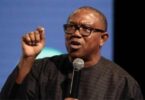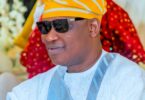Democracy Day is observed in Nigeria on June 12 every year. The day is significant in Nigerian history, representing the country’s struggle for democracy.
June 12 commemorates the 1993 presidential election, in which results indicated that MKO Abiola won the poll widely regarded as the most free election in Nigerian history but was never declared the president.
Tribune Online looks at seven quick facts about June 12 in this article.
1. Nigeria’s presidential election on June 12, 1993, was widely regarded as the freest and fairest in the country’s history.
2. The election result indicated that MKO Abiola of the Social Democratic Party (SDP) won against Bashir Tofa of the National Republican Convention (NRC). Abiola won 19 out of 30 states and the Federal Capital Territory.
3. The then-military ruler, General Ibrahim Babangida, annulled the election, citing poll irregularities. The annulment resulted in political unrest and several protests. Abiola’s supporters took to the streets in protest, demanding that the election results be upheld.
4. Abiola declared himself president and commander-in-chief in June 1994. He was later arrested and accused of treason. Abiola died in captivity on July 7, 1998, the day he was scheduled to be released.
5. Previously, June 12 was known as Abiola Day, which was observed in some southwestern states to remember the annulment of the June 12 election.
6. In recognition of June 12’s significance, former President Muhammadu Buhari declared it Democracy Day on June 7, 2018, replacing May 29.
7. In 2019, former President Buhari posthumously awarded MKO Abiola the highest national honour, Grand Commander of the Federal Republic (GCFR), for his contributions to the fight for democracy.
. TheWitness







